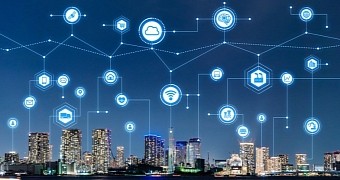Connected areas, also known as smart cities, use interconnected devices and sensors to increase service quality, such as configuring traffic lights to reduce congestion.
The benefits of smart cities and linked rural environments are various. However, even if cities are getting “smart,” security aspects should not be ignored, as it would create more problems. Sensitive data must be protected against large-scale theft.
The NCSC, a division of GCHQ (Government Communications Headquarters), has issued guidelines to local governments on how to secure "connected places." They warn that critical public services must be protected against disruption.
The technical director of the NCSC, Dr. Ian Levy, mentioned a classic British film as an example of the potential impact of such disruption.
He wrote in a blog the following:
“One of the first Hollywood depictions of a cyberattack was against critical infrastructure,”
“It was an attack against a city’s centralized traffic management system in the 1969 film The Italian Job."
“As part of an elaborate heist, a dodgy computer professor (played by Benny Hill) switches magnetic storage tapes for the Turin traffic control to create a gridlock. Chaos ensues, they ‘blow the bloody doors off,’ and the thieves escape with the gold.”
He stated that an attack targeted to a smart city from our days would have a massive impact on the people who live and work there. It is also pointed out that cybercriminals would not need physical access to the traffic control system to manipulate it.
NCSC helps local authorities to better prepare for a potential cyberattack
The NCSC's latest guidance provides principles for councils and local authorities to help secure connected places and their underlying infrastructure in response to the threat.
The principles include guidance on how to build and manage smart city networks to avoid large-scale data loss or rogue actors gaining access for hacking, spying or other purposes.

 14 DAY TRIAL //
14 DAY TRIAL //